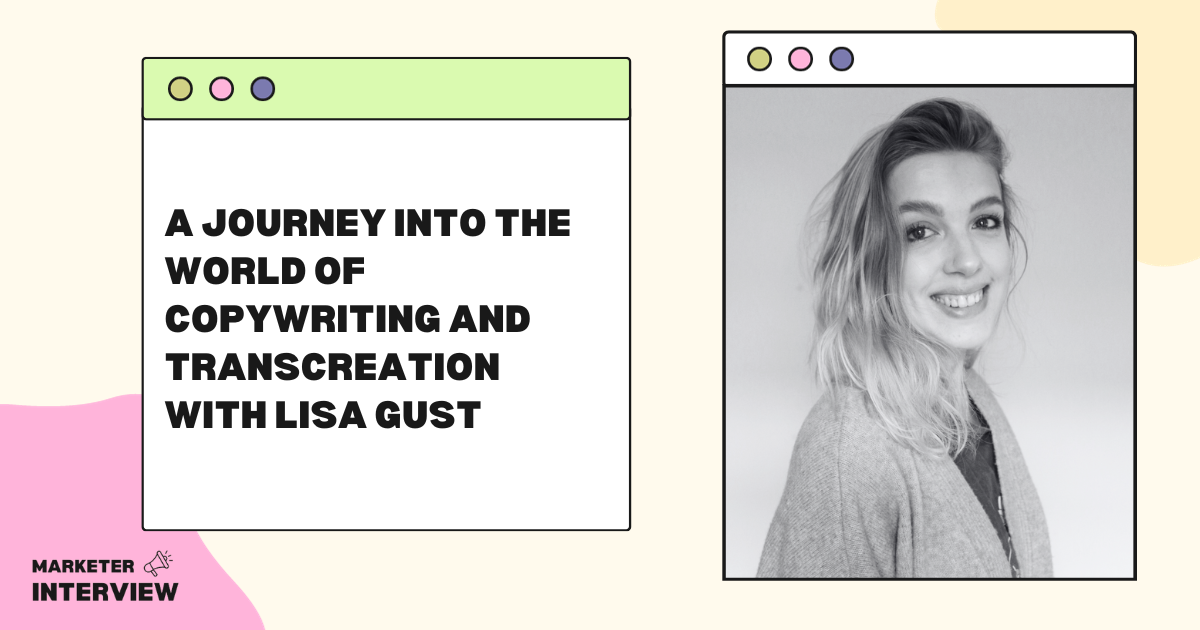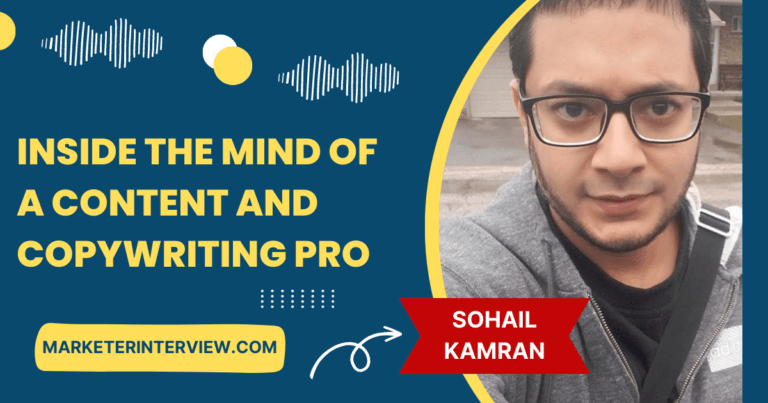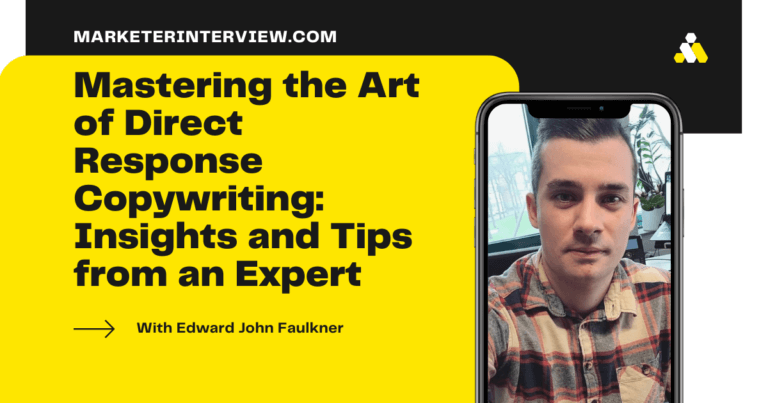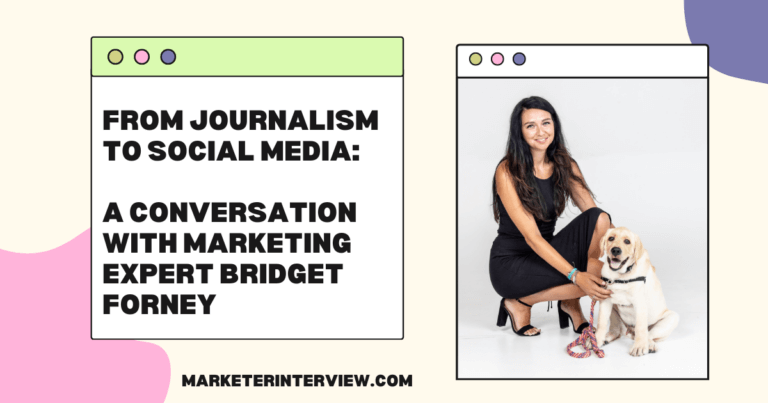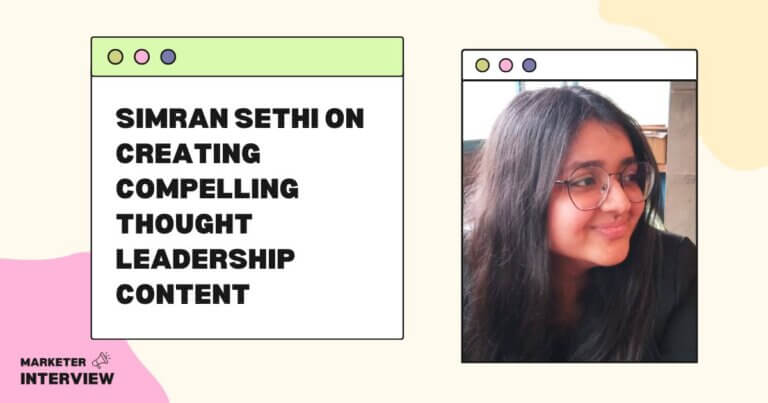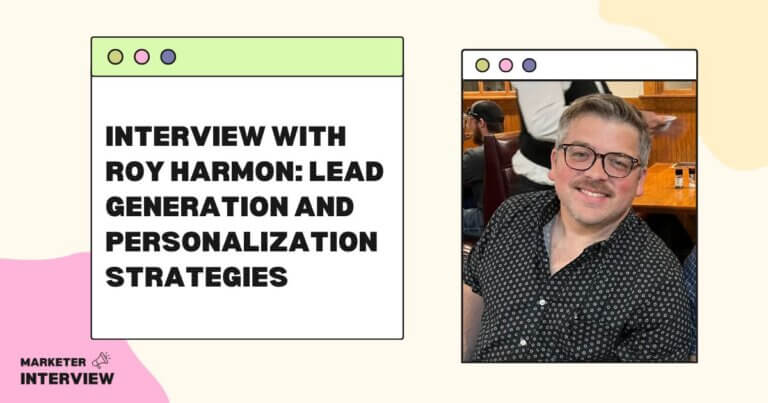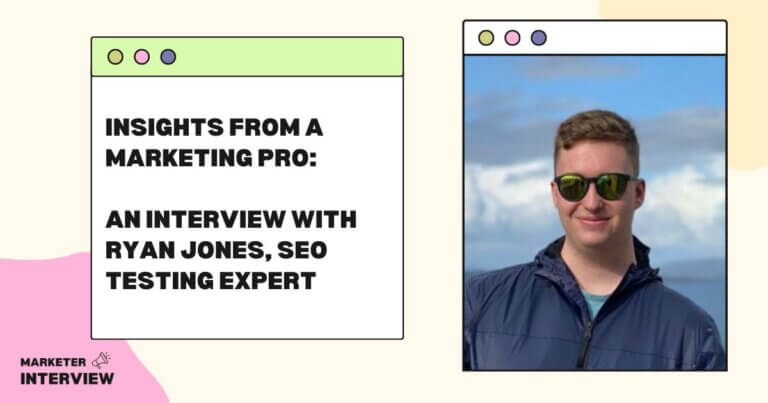A Journey into the World of Copywriting and Transcreation with Lisa Gust
In the enchanting marketing world, words wield a magic of their own. At the heart of this sorcery is Lisa Gust, a seasoned Copywriter and Transcreator.
In this exclusive interview with Lisa, we dive deep into the art of copywriting and transcreation, unraveling the secrets behind her spellbinding career.
Contents
- 1 Can you share how you found your way into marketing and discovered your passion for words and communication?
- 2 What inspired you to specialize in copywriting and transcreation? Were there any defining moments in your career that led you down this path?
- 3 As a German native living in the UK, do you find your cultural background influences your approach to copywriting and transcreation? How do you navigate the nuances of language and culture in your work?
- 4 Words, indeed, have weight. How do you ensure your copy resonates with the target audience, regardless of cultural differences?
- 5 Can you walk us through a typical day in your role as a Copywriter & Transcreator? What are the critical tasks and challenges you encounter regularly?
- 6 Are there specific industries or types of projects that you find particularly enjoyable or challenging to work on?
- 7 In the ever-evolving marketing landscape, how do you stay updated on the latest trends and techniques in copywriting and transcreation?
- 8 Could you share a project or campaign that you are incredibly proud of? What made it stand out, and what were the key elements that contributed to its success?
- 9 Considering your expertise, what tools and software are indispensable to your work as a Copywriter & Transcreator?
- 10 For aspiring copywriters and transcreators, what advice do you have? Are specific skills or qualities crucial for success in this field?
- 11 How do you envision the future of copywriting and transcreation, and what role do you see yourself playing in it?
Stereotypically, I was always ‘that kid’ who liked reading and writing stories. Then, I went on to study English and German linguistics and literature. So, that was always a passion of mine, but I never quite clocked that it was a profession I could make a living with.
In my first ‘big girl job’ in London – I was an executive assistant. Part of my day-to-day involved helping out the marketing department. The company had a significant presence in the German market, so I was helping with translations and copywriting. That’s when I realized that this is my passion. I enjoyed it (probably the only part of that job I enjoyed).
The marketing manager said, you know, copywriting is an actual job you can make money with. And I was like, well, here we go. So, I left the company and set up my freelance business.
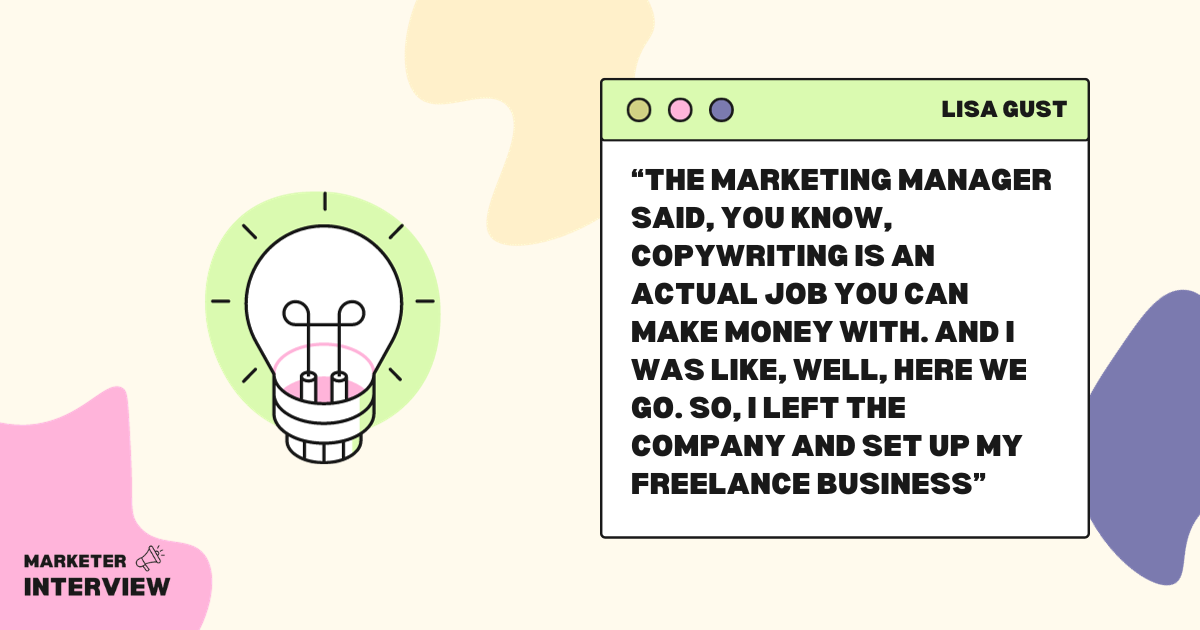
What inspired you to specialize in copywriting and transcreation? Were there any defining moments in your career that led you down this path?
It was quite a natural progression. I started with copywriting, translation, and proofreading – partly because I thought they go together, partly because these terms are more widely known, and partly because I had no real clue what I was doing.
My first few projects weren’t very creative. But over time, as I’ve become more skilled and developed as a writer, I realized that transcreation is more my cup of tea because it gives me more creative freedom and allows me to play with language more freely.
L literal translation has its place in, for example, legal translations, whereas transcreation has a home in marketing. It’s a lot more versatile and a lot more fun.
It influences my efficiency and organization (you can take the German out of Germany…). Being on time and efficient with my work has helped me in my freelance career.
To navigate the nuances in transcreation, you need to have two brains switched on simultaneously. When I see the English copy, I must extract the meaning, the tone, and the register. And with that information, I switch on my German brain and find the equivalent.
That includes, for example, adapting any content to match the (presumed) knowledge of the target audience and using a register they’re likely to understand while still ensuring the brand is positioned in a way they want to be perceived. It’s not always easy, but I enjoy the challenge.
Words, indeed, have weight. How do you ensure your copy resonates with the target audience, regardless of cultural differences?
Like I said before, for transcreation, you need to switch two brains on at the same time. And you need a thorough understanding of each culture.
If it’s “just” copywriting, which I pretty much exclusively do in German, it’s different because I only need to think about one culture, as opposed to transporting copy from one culture to another.
Either way, you need to try and understand what your target audience knows – or doesn’t know – concerning their background. And then adapt your copy accordingly.
Can you walk us through a typical day in your role as a Copywriter & Transcreator? What are the critical tasks and challenges you encounter regularly?
If I’m booked full-time on a project, I work during the client’s office hours. If not, I’m usually at my desk around 9:30 am/10 am. I usually do my creative work in the morning and early afternoon, and the more mundane tasks like answering emails or other admin bits in the later afternoon. I typically finish between 4 pm and 5 pm.
A challenge I always encounter is character and word limits. After transcreating, a German text is around 30% longer than an English one. And sometimes you also need more words to soften German. That always requires a bit of trial and error.
Are there specific industries or types of projects that you find particularly enjoyable or challenging to work on?
Anything that crosses over with my interests is gratifying. For example, I’ve written copy for an audiobook provider before, and like I said, I love literature. So that’s fun.
Likewise, it is challenging when it’s a boring topic. I don’t tend to take on as many projects, which don’t fill me with joy anymore, but you can’t always avoid it. Or if I don’t have creative freedom at all, if I’m given keywords, a word limit, and a structure, I just have to stick to that. I’m not very good with that, and I find it incredibly difficult to get motivated for that kind of work.
In the ever-evolving marketing landscape, how do you stay updated on the latest trends and techniques in copywriting and transcreation?
Social media and freelancing networks. Reading people’s posts about industry-related topics, chatting with fellow copywriters, and exchanging ideas. There’s no better source, in my opinion!
I’m working on a brilliant project, which probably won’t have gone live by the time this interview comes out. But I will shout about it once it does, so do keep an eye on my social media 😉
It’s the biggest project I’ve worked on to date. It’s a client with a presence in the UK and the German market, and they’re undergoing a massive rebrand. I’ve been solely responsible for adapting English into German, starting with developing the German tone of voice and implementing it across every written content.
It means that the German voice of this brand comes from me, and I am unbelievably proud of this project. The team has been incredible. Everyone is super talented and lovely to work with. I’ve learned so much and left my comfort zone for this. It’s been a learning experience for sure.
Considering your expertise, what tools and software are indispensable to your work as a Copywriter & Transcreator?
Contrary to popular belief, I don’t know every word in English or German. So, the OED and its German equivalent (Duden) are my go-to’s. Same with dictionaries such as Leo, Pons, or Linguee.
I also use Google’s Keyword Planner when I need to implement some SEO. Besides, it’s just me, my brain, and many half-filled notebooks! (And my computer, of course.) I haven’t entirely made the step towards AI yet.
For aspiring copywriters and transcreators, what advice do you have? Are specific skills or qualities crucial for success in this field?
You do need an inherent understanding of the languages you’re working with. “I was quite good at school” does not count. You need to know colloquialisms, heritage, history, and cultures. That’s paramount.
I know a degree is not obtainable for everybody, but some form of course or qualification probably helps. And then it’s just a matter of always getting your foot in the door and being open to learning every day. And look to your fellow copywriters and transcreators for advice and knowledge.
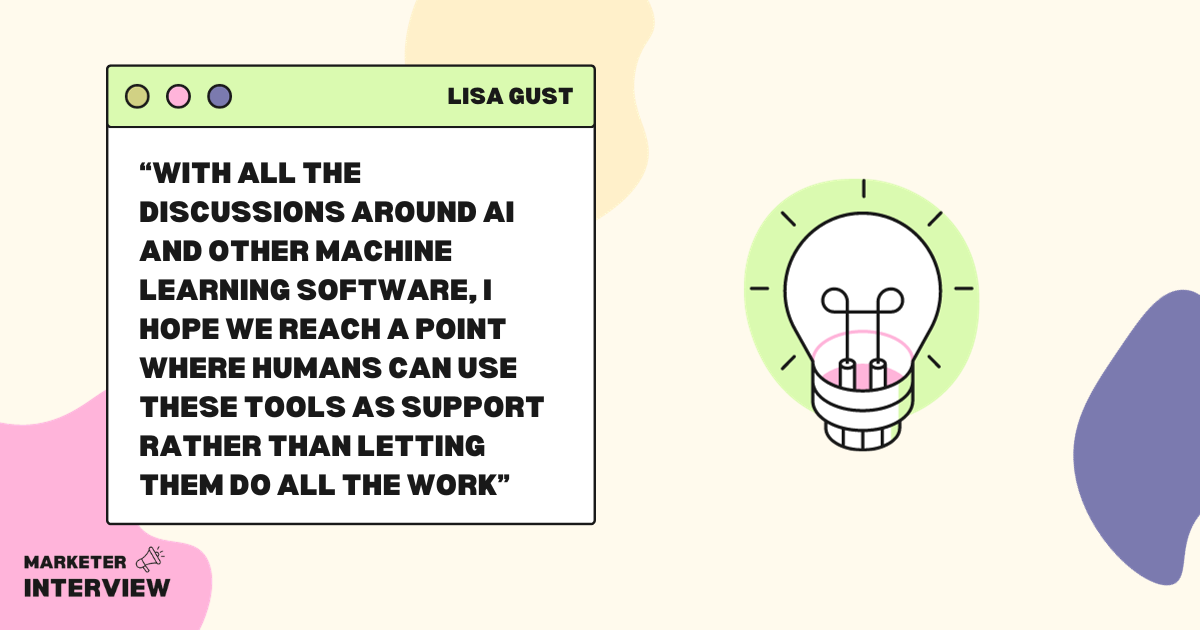
How do you envision the future of copywriting and transcreation, and what role do you see yourself playing in it?
With all the discussions around AI and other machine learning software, I hope we reach a point where humans can use these tools as support rather than letting them do all the work. I’ve just said I’ve not stepped toward AI yet, but I know it’s probably the industry’s future.
As for me, I want to continue working with clients who care about their brand and help them create copy that makes them stand out. I can’t see myself ever leaving this industry. I just love it too much.
